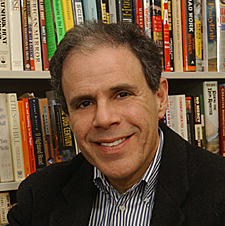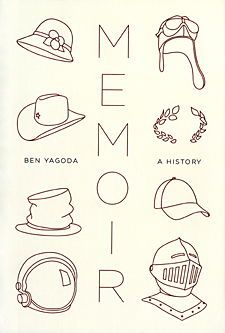ADVERTISEMENT
- Rozovsky wins prestigious NSF Early Career Award
- UD students meet alumni, experience 'closing bell' at NYSE
- Newark Police seek assistance in identifying suspects in robbery
- Rivlin says bipartisan budget action, stronger budget rules key to reversing debt
- Stink bugs shouldn't pose problem until late summer
- Gao to honor Placido Domingo in Washington performance
- Adopt-A-Highway project keeps Lewes road clean
- WVUD's Radiothon fundraiser runs April 1-10
- W.D. Snodgrass Symposium to honor Pulitzer winner
- New guide helps cancer patients manage symptoms
- UD in the News, March 25, 2011
- For the Record, March 25, 2011
- Public opinion expert discusses world views of U.S. in Global Agenda series
- Congressional delegation, dean laud Center for Community Research and Service program
- Center for Political Communication sets symposium on politics, entertainment
- Students work to raise funds, awareness of domestic violence
- Equestrian team wins regional championship in Western riding
- Markell, Harker stress importance of agriculture to Delaware's economy
- Carol A. Ammon MBA Case Competition winners announced
- Prof presents blood-clotting studies at Gordon Research Conference
- Sexual Assault Awareness Month events, programs announced
- Stay connected with Sea Grant, CEOE e-newsletter
- A message to UD regarding the tragedy in Japan
- More News >>
- March 31-May 14: REP stages Neil Simon's 'The Good Doctor'
- April 2: Newark plans annual 'wine and dine'
- April 5: Expert perspective on U.S. health care
- April 5: Comedian Ace Guillen to visit Scrounge
- April 6, May 4: School of Nursing sponsors research lecture series
- April 6-May 4: Confucius Institute presents Chinese Film Series on Wednesdays
- April 6: IPCC's Pachauri to discuss sustainable development in DENIN Dialogue Series
- April 7: 'WVUDstock' radiothon concert announced
- April 8: English Language Institute presents 'Arts in Translation'
- April 9: Green and Healthy Living Expo planned at The Bob
- April 9: Center for Political Communication to host Onion editor
- April 10: Alumni Easter Egg-stravaganza planned
- April 11: CDS session to focus on visual assistive technologies
- April 12: T.J. Stiles to speak at UDLA annual dinner
- April 15, 16: Annual UD push lawnmower tune-up scheduled
- April 15, 16: Master Players series presents iMusic 4, China Magpie
- April 15, 16: Delaware Symphony, UD chorus to perform Mahler work
- April 18: Former NFL Coach Bill Cowher featured in UD Speaks
- April 21-24: Sesame Street Live brings Elmo and friends to The Bob
- April 30: Save the date for Ag Day 2011 at UD
- April 30: Symposium to consider 'Frontiers at the Chemistry-Biology Interface'
- April 30-May 1: Relay for Life set at Delaware Field House
- May 4: Delaware Membrane Protein Symposium announced
- May 5: Northwestern University's Leon Keer to deliver Kerr lecture
- May 7: Women's volleyball team to host second annual Spring Fling
- Through May 3: SPPA announces speakers for 10th annual lecture series
- Through May 4: Global Agenda sees U.S. through others' eyes; World Bank president to speak
- Through May 4: 'Research on Race, Ethnicity, Culture' topic of series
- Through May 9: Black American Studies announces lecture series
- Through May 11: 'Challenges in Jewish Culture' lecture series announced
- Through May 11: Area Studies research featured in speaker series
- Through June 5: 'Andy Warhol: Behind the Camera' on view in Old College Gallery
- Through July 15: 'Bodyscapes' on view at Mechanical Hall Gallery
- More What's Happening >>
- UD calendar >>
- Middle States evaluation team on campus April 5
- Phipps named HR Liaison of the Quarter
- Senior wins iPad for participating in assessment study
- April 19: Procurement Services schedules information sessions
- UD Bookstore announces spring break hours
- HealthyU Wellness Program encourages employees to 'Step into Spring'
- April 8-29: Faculty roundtable series considers student engagement
- GRE is changing; learn more at April 15 info session
- April 30: UD Evening with Blue Rocks set for employees
- Morris Library to be open 24/7 during final exams
- More Campus FYI >>
10:14 a.m., Dec. 10, 2009----For a literary genre that traces its origins back to Julius Caesar, the memoir is still going strong, and Ben Yagoda, professor of English at the University of Delaware, has some ideas why.
In Memoir: A History (Riverhead Books), Yagoda offers both a survey of the genre's most illustrious works, including the 5th century classic, Confessions of Saint Augustine, while fast-forwarding to look at the phenomenon of contemporary bestsellers such as Going Rogue, by former Alaska governor and vice presidential candidate Sarah Palin.
Besides screening the good, the bad and the ugly of the genre, Yagoda examines the underlying reasons for America's enduring fascination with the memoir. The author of Will Rodgers: A Biography, Yagoda also addresses controversial issues such as honesty, accuracy, privacy and trust in memoir writing today.
“I wrote the book because the memoir is such a popular genre, and the number of such books has continued to be grow even during the last 15 to 20 years,” Yagoda said. “This boom has brought with it certain questions, including why talking about personal matters in memoir form is so popular with readers.”
Yagoda notes that the memoir's historical lineage extends from the works in the classical era, to religious-themed memoirs written in the 16th and 17th centuries, to the more secular autobiographies that began to appear in the mid-to-late 1700s.
“The Confessions of Jean-Jacques Rousseau (1782) looms large in the history of the genre,” Yagoda said. “Rousseau used a very modern approach, being frank and very scandalous at the same time. This book could easily have been written today.”
Recent classics, Yagoda noted, include Angela's Ashes, by Frank McCourt, and This Boy's Life, by Tobias Wolff, which helped shaped today's memoir.
“When the Wolff book was published in 1989, it had the subtitle, 'A Memoir,' which was something rarely found at that time,” Yagoda said. “Wolff pioneered several other key conventions, including structuring the book in much the same way one would a novel, with characters, screened dialogue and the strategic omissions of large parts of his life.”
One of the key differences between the modern memoir and its historical predecessors, Yagoda noted, is that previously such works were written by the most eminent individuals in their particular field of politics, science or business, and usually covered their entire careers, while authors of today's memoir are selective about how long a period they wish to chronicle and just what information is included.
With the advent of the Internet and relatively inexpensive self-publishing venues, almost anyone today can write a memoir and have it published, Yagoda said.
“I think there is a connection between the popularity of reality shows, and talk shows, like Oprah,” Yagoda said. “There seems to be more of a hunger for something true or real, in a basic sense. The Internet also has made self publishing a book pretty easy and not all that expensive.”
While the appeal of memoirs covering all kinds of subjects, from pets, to teachers to the famous and infamous in the fields of sports and entertainment continues to grow, so has the controversy and contentiousness surrounding works whose events and experiences may have been more in the realm of fiction that fact.
“Sometimes it has been proven that certain books have been either fabrications or heavily exaggerated, and even in books without scandal, we have to ask ourselves if we expect every word to be true,” Yagoda said. “There is a lot of confusion on this issue. I view it as a kind of human thing. If a certain book is successful, there is the human temptation to make up something similar. These things happen, and it's a gray area, certainly not ideal, but where do you draw the line?”
Writing memoirs continues to be popular with college students and others interested in the genre, said Yagoda, who has offered several workshops that include writing non-fiction journalism such as the essay and the memoir.
“You can go from a short thing, like a 10-page paper, to a book. Thematically, the student/author has to justify what is important and unique about himself or herself,” Yagoda said. Some of the best assignments are usually in the form of memoir, because the students know and care about the material.
Another venue for discussions on such topics is the Web log, or blog. Made possible by the Internet, blogs have opened up discussion on many matters, including writing and literary genres, and Yagoda invites those interested to visit his blog.
Favorite memoirs for Yagoda include Growing Up by Russell Baker and Roughing It by Mark Twain.
“Twain's book is really funny and very interesting, and a lot of people, including James Thurber, have written excellent books of that sort,” Yagoda said. “Chronicles, by Bob Dylan, also is a very good memoir.”
In addition to his biography of Will Rogers, Yagoda has authored, When You Catch an Adjective, Kill It: The Parts of Speech, for Better And/Or Worse (2007), About Town: The New Yorker And The World It Made (2001), The Sound on the Page: Great Writers Talk about Style and Voice in Writing (2005) and The Art of Fact: A Historical Anthology of Literary Journalism (1998), co-edited with Kevin Kerrane, a fellow professor of English at UD.
Yagoda also credits the assistance of Donald C. Mell, professor of English and chair of the board of editors of the University of Delaware Press, for providing insights about the blurred line between fiction and non-fiction, and Carl Dawson, professor of English and author of several scholarly books about Victorian era autobiography.
Article by Jerry Rhodes




